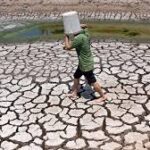We can do it on paper and in our minds, but for the migrant women and their children who are coming through Tucson, it’s anything but a game. Its life and death.
Ours is a ‘what if’ game.
What if your young son came home from school and told you some of the older kids threatened to kill his sister if he didn’t join their gang. Would you simply send him back? Or would you do what you could to protect your kids and get them to safety?
What if you sold candy on the street corner and were approached and told if you didn’t split your income you’d end up dead? Would you keep selling and earning your meager income, or would you leave the area and find a safe place to live?
What if your young daughter’s friend was found dismembered on the outskirts of town and you knew it was a case of sexual assault and murder? Would you do a little grieving and just keep on living in that place, or would you flee to safety?
These are not made up tales. They represent actual accounts we have heard from the migrant women I.C.E. is dropping off at the Project Mariposa intake center. And they are not unique. They’re typical of what we hear over and over. Do we also hear about poverty and people coming to the United States as a way of trying to find a good job? Of course. And we often hear of both poverty, and stories involving danger being told by members of the same family. This isn’t an ‘either/or’ situation. It’s far too often ‘both/and.’
In order to qualify for refugee status a person must be able to demonstrate they have a reasonable fear for their safety if they are sent back, and that fear is based on their status. We’re clearly seeing women and their children who fit that description. And we hear politicians from both parties suggest the solution is to ‘send them back.’
Send them back, to what? Send that young boy back to school and test whether or not the threat to your daughter was for real? Go back to the street corner and sell your goods to test whether the threat was for real? Send your daughter out on her normal daily activities and just hope for her safety?
There’s not a parent among us who would do that. And if they’re being honest, there’s not a politician in Congress who would, either. But for the Central American women and their families, it’s the answer our politicians offer. It’s election season, after all. They can’t be bothered with a messy scene at the border. Better if it was off the front pages of the paper. Out of sight, out of mind.
Arizona Bilingual Newspaper, is carrying the banner of this issue among the local press. For that, I’m grateful. The Project Mariposa volunteers and faith based organizations who are caring for the families arriving here from Guatemala and other Central American countries also deserve to take a bow. We’re a caring community, and that truth continues to be manifested every day in how the migrant refugee families’ lives are touched.
Because the mainstream media has moved onto other issues doesn’t mean the pain inflicted on the lives of the migrant families is any less real. Thankfully there remains this media outlet to tell the story. And thankfully there remain those in the community willing to persevere in the work. After all, it’s no game for those who are living it.
Donations of food and children’s travel toys are still being accepted at the Ward 6 City Council office – 3202 E. 1st Street. Our phone number is (520) 791.4601.
Steve Kozachic
Ward 6














More Stories
Immigration and Street Releases
PACC at 142% capacity for dogs, in desperate need of adopters and fosters
A Difficult Question
Ready, Set, Rec
A Difficult Question – Sensible Cremations and Funerals
Proud Parents – Anna and Ben